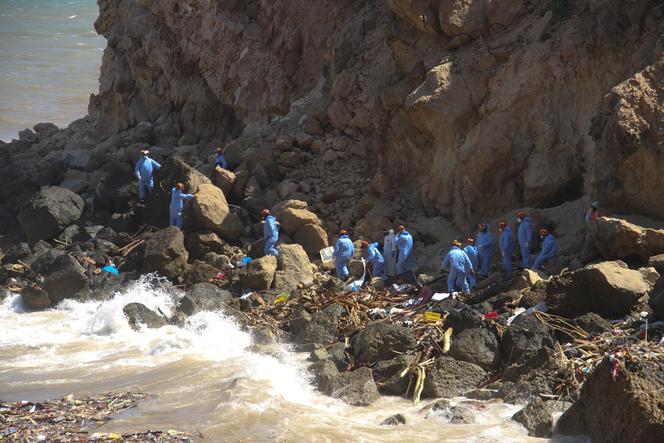


The United Nations warned on Monday, September 18, that disease outbreaks could bring "a second devastating crisis" to Libya a week after a huge flash flood shattered the coastal city of Derna, sweeping thousands to their deaths.
Local officials, aid agencies and the World Health Organization "are concerned about the risk of disease outbreak, particularly from contaminated water and the lack of sanitation", the UN said.
The flash flood that has killed nearly 3,300 people and left thousands more missing came after the war-scarred North African country was lashed by the hurricane-strength Storm Daniel on September 10.
Tens of thousands of traumatized residents are homeless and badly in need of clean water, food and basic supplies amid a growing risk of cholera, diarrhea, dehydration and malnutrition, UN agencies have warned.
Libya's disease control center banned citizens in the disaster zone from drinking water from local mains, warning that it is "polluted".
Rescue teams from several European and Arab countries kept up the grim search for bodies in the mud-caked wasteland of smashed buildings, crushed cars and uprooted trees.
The waters submerged a densely populated six-square-kilometre (2.3-square-mile) area in Derna, damaging 1,500 buildings of which 891 were totally razed, according to a preliminary report released by the Tripoli government based on satellite images.
One bereaved Derna resident, Abdul Wahab al-Masouri, lamented what has become of his city.
"We grew up here, we were raised here... But we've come to hate this place, we've come to hate what it has become," he said.
"The buildings, the neighbourhood, the villagers, the sheikhs... the wadi has returned to the state it was 1,000 years ago. People live in caves, the city looks dead, barren, there is no life left."
Bulldozers cleared roads from caked mud, including at a mosque as a foul smell permeated the air and a woman prayed for the children and grandchildren killed by the flooding.
Amid the chaos, the true death toll remained unknown, with untold numbers swept into the sea. Soldier Hamza al-Khafifi, 45, described to Agence France-Presse (AFP) finding unclothed bodies washing up on the coastline where "bodies were stuck between rocks".
The health minister of the divided country's eastern administration, Othman Abdeljalil, has said 3,283 people were now confirmed dead in Derna. Libyan officials and humanitarian groups have warned, however, that the final toll could be much higher, with thousands still missing.
Emergency response teams and aid have been deployed from countries including Egypt, France, Greece, Iran, Russia, Saudi Arabia, Tunisia, Turkey and the United Arab Emirates.
Five members of a Greek rescue team were killed when their vehicle collided with a car carrying a Libyan family on the road from Benghazi to Derna on Sunday, an official said. Three members of the family also died.
Egypt dispatched the "Gamal Abdel Nasser" Mistral helicopter carrier to the eastern Tobruk military base across the border to serve as a field hospital with over 100 beds, Egyptian media reported. France said it had set up a field hospital in Derna.
On Monday, the United Nations, which has launched an emergency appeal for more than $71 million, said nine of its agencies were delivering aid and support to survivors, and working to prevent the spread of diseases.
The European Union on Monday said it was releasing €5.2 million euros in humanitarian funding for Libya, bringing total EU aid so far to more than €5.7 million.
